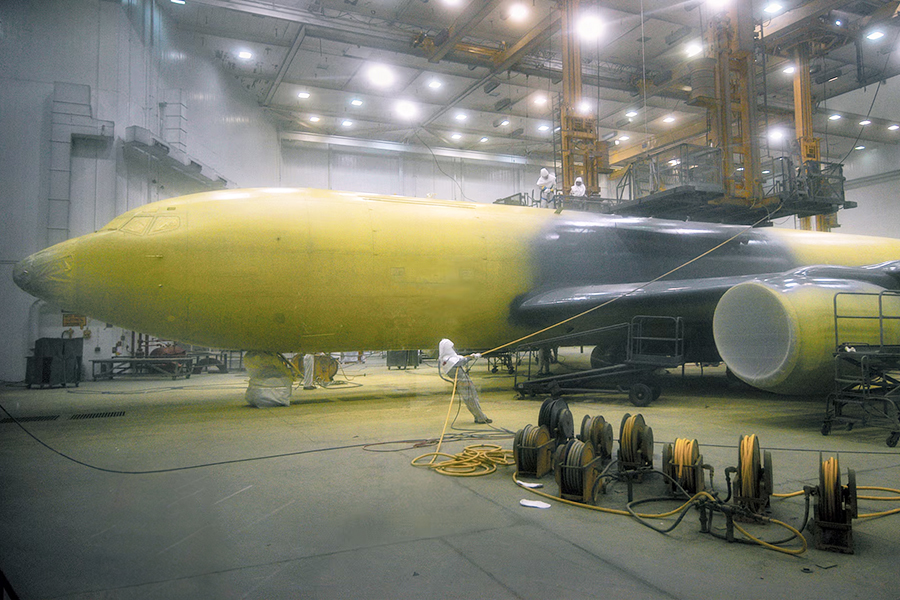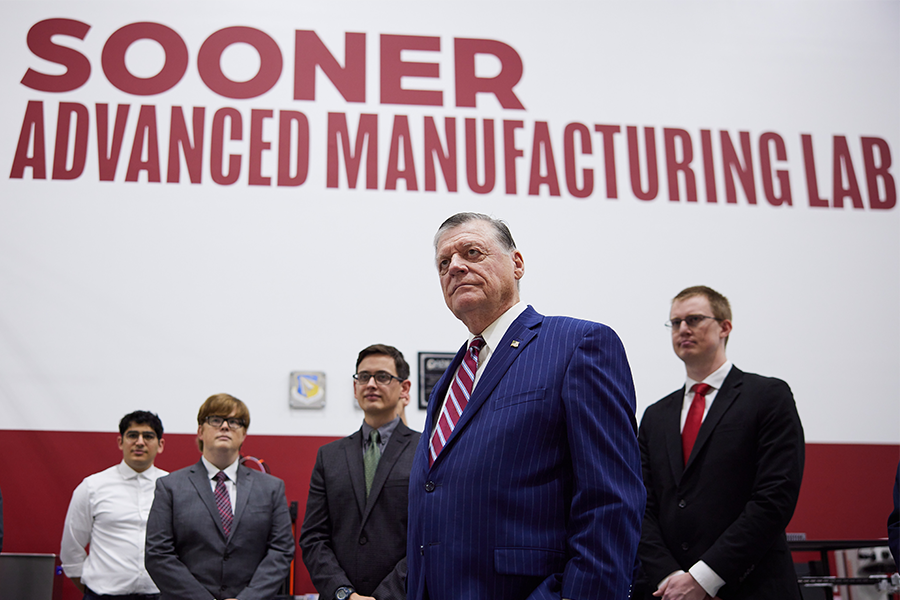
October 07, 2024
The University of Oklahoma has received a $4.8 million commitment from the Oklahoma City Air Logistics Complex at Tinker Air Force Base to create a primer free of chromium containing materials to protect U.S. military aerospace equipment from corrosion.

November 08, 2024
Congressman Tom Cole met with faculty, staff and students at the University of Oklahoma's Sooner Advanced Manufacturing Lab in Norman on Tuesday. The lab, known as SAML, supports cutting-edge research and development in high-tech manufacturing and workforce training for federal and industry partners.